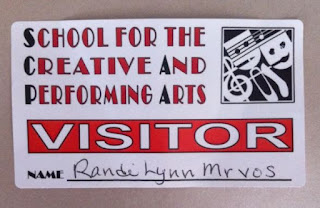Surprisingly audacious reflections of
a humble writer
LEARNING WITH THE MANUSCRIPT ACADEMY
My new manuscript was sh*t. (My husband tried to warn me the piece needed more work).
Thinking it was good enough to submit, I had a 10-minute conversation with a literary agent, where I heard for a second time the story needed help.
This short phone call with a member of the Manuscript Academy saved me from submitting a poorly developed manuscript. Without having this conversation, I would have submitted my work to agents and gotten rejections (and been in the dark about why it was rejected).
I stumbled across this amazing online conference when I searched for agents. I read that for a low price, you could have a consultation with an agent to discuss a manuscript and a query letter.
I'm glad I did.
The Manuscript Academy is a unique online instruction can be enjoyed from the comfort of your home. All you need is a computer, a tablet, or even your smartphone to log in and you will receive advice and instruction from some of the best minds in the literary community.
Here is what is available:
- Access to exclusive recorded classes and panels, designed to educate you about need-to-know topics such as how to submit your work, what agents and editors are looking for, how to craft amazing novels and books, the business of writing and promotion, and much more. You will have access to many high-quality recorded video presentations for 30+ full days—so you can pause, rewind, and notes at your own convenience. See the full schedule of classes here.
- Opportunities to pitch agents and editors one-on-one online. Using just your computer, you can arrange one-on-one pitches with literary agents and publishing house editors who are actively seeking books and clients right now. (Pitches are optional. You can sign up for as many pitches as you like.)
- Critique opportunities for your work. If you want a professional critique of your work, then Manuscript Academy has opportunities for you. Our awesome faculty of agents, editors, and published authors offer detailed critiques of manuscript pages, query letters, synopses, and nonfiction book proposals. This is an amazing opportunity to get expert feedback on your work. Plus, Manuscript Academy members also gain access to our Academy Forum, which allows writers to connect with each other and form online writing critique groups.
- Live query and first page workshops and discussions (in groups of up to 10) on topics ranging from Publishing Law to How to Be A Trendsetter, Not Trendy. All of these are designed to be introvert friendly.
For under $50, I had a ten-minute consult with a well-known literary agent. For me, it was a little nerve-wracking because she was late calling. I was nervous to begin with and then...my computer went to sleep.
I clicked and moved my mouse frantically.
I got panicky. I wanted it to wake up, wake up, WAKE UP!
Luckily, I had jotted down my questions in advance so it was easy to continue. Halfway through our short conversation, the agent told me that the middle of my manuscript was weak. OMG, she suggested how to improve it!
I clicked and moved my mouse frantically.
I got panicky. I wanted it to wake up, wake up, WAKE UP!
Luckily, I had jotted down my questions in advance so it was easy to continue. Halfway through our short conversation, the agent told me that the middle of my manuscript was weak. OMG, she suggested how to improve it!
The Manuscript Academy was right for me. And it may be right for you. Poke around on the website and discover how the classes and consults work. Read the testimonials. Imagine talking about your manuscript with a professional and learning how she feels about it. Find out if your work is ready to sent out agents.
$49 + 10 minutes = priceless knowledge
$49 + 10 minutes = priceless knowledge
À la prochaine






